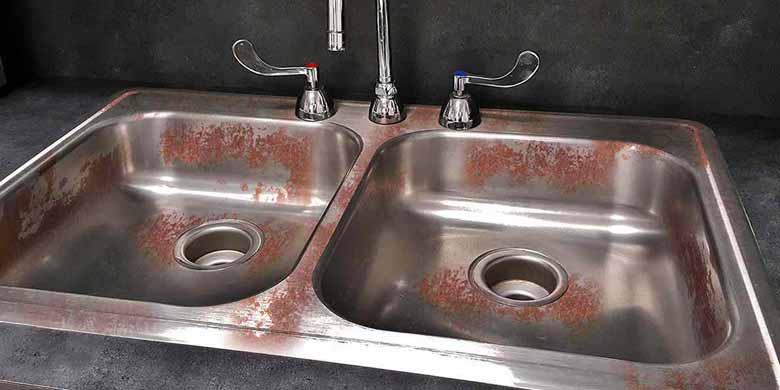Is Pasta Protein Or Carbohydrate?
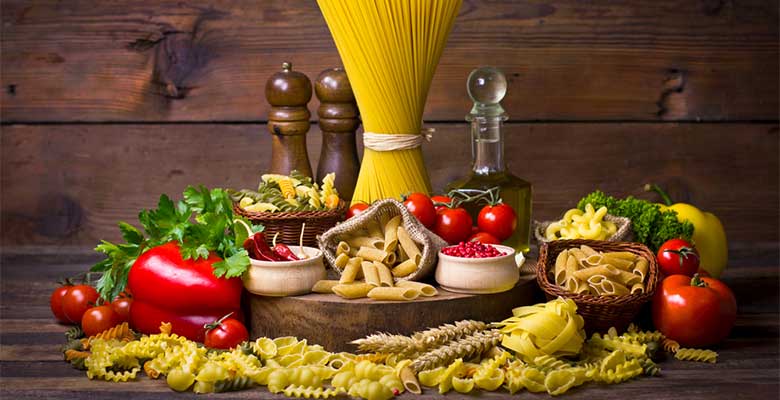
How Much Protein Is in Pasta
Sometimes, nothing but a bowl of well-cooked pasta can make us smile. If pasta is one of your favorite dishes like mine and you’re a health-conscious person as well, you may ask you sometimes, is pasta protein or carbohydrate?
Well, the one-word answer is, pasta is a carbohydrate. If you want to be more clear and need to know the facts, you’re welcome. In this article, we have come up with everything you need to know about pasta.
Well, that was a lot of chitchats. Without further ado, let’s just jump in. Shall we?
Is Pasta Protein or Carbohydrate?
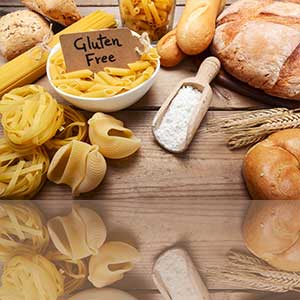 The one-word answer to this question- pasta is a carbohydrate. It is traditionally made out of pasta wheat/durum wheat, water, salt, and eggs. Although the key ingredient is wheat, nowadays, some pasta is made from other grains like rice, rye, or maize.
The one-word answer to this question- pasta is a carbohydrate. It is traditionally made out of pasta wheat/durum wheat, water, salt, and eggs. Although the key ingredient is wheat, nowadays, some pasta is made from other grains like rice, rye, or maize.
Also, grain flour is sometimes being replaced with cooked potatoes. So, yes, basically, the key ingredients of pasta are wheat, water, eggs, and salt. Now, here’s a breakdown of the individual nutrition facts of the ingredients:
30 grams of wheat contains-
- 23 grams of carbohydrates
- 2 grams of protein
- 1 gram of fat
100 grams of egg contains-
- 2 grams of protein
- 9 grams of fat
- 4 grams of carbohydrate
And, both water and salt contain 0 grams of carbohydrates and 0 grams of protein.
Wheat is the key ingredient of pasta and it is high in carbohydrates. So, you can say that pasta is a carbohydrate. If you’re not satisfied, have a look at the nutrition facts of pasta we’ve shared below.
Nutrition Facts of Pasta
To make things crystal clear to you, here is the nutritional value per 100 grams of pasta (cooked without salt, unenriched).
- Energy- 160 kcal
- Carbohydrates- 30 grams
- Protein- 5.8 grams
- Fat- 0.9 gram
- Vitamins (e.g vitamin C, vitamin E, Thiamin B1, etc)
- Minerals (e.g calcium, iron, zinc, etc)
So, what does it mean? As you can see yourself here, the amount of carbs are much more than protein in pasta. So, we can say that pasta is a carbohydrate, not protein.
Pasta is High in Carbohydrates
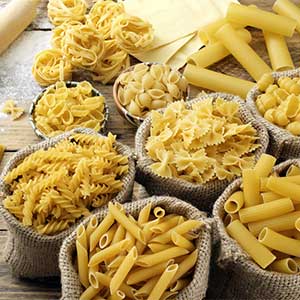 After all these discussions, maybe you are now aware of the fact that pasta is a carbohydrate. 1 cup of spaghetti (cooked) contains around 37-43 grams of carbohydrates depending on if it is whole-grain or refined.
After all these discussions, maybe you are now aware of the fact that pasta is a carbohydrate. 1 cup of spaghetti (cooked) contains around 37-43 grams of carbohydrates depending on if it is whole-grain or refined.
Here’s a point to be noted, if you have diabetes, you have to keep the carbohydrate intake in moderation as well as eat a fair amount of fiber.
High-carb foods are also related to several health conditions, let’s move onto the next section to know about these in details.
How Carbohydrate Affects You
By knowing the facts about what you’re eating and how it is affecting your body, you’ll enjoy the meal without any mental pressure. Now, if you’re a bit confused about how carbohydrate affects your body, here is some useful information you’ll find helpful.
 Your brain needs 130 grams of carbohydrates in a day to function properly. Carbs produce the hormone ‘serotonin’ that balances and boosts your emotions.
Your brain needs 130 grams of carbohydrates in a day to function properly. Carbs produce the hormone ‘serotonin’ that balances and boosts your emotions.
However, it is somehow questionable if there are negative health effects of some carbohydrates.
Taking fructose and galactose as examples. Fructose is found in regular sugar as well as high-fructose corn syrup and galactose is found in milk. Now, the answer to how carbs are affecting your health is dependent on your body’s efficiency in breaking down the molecules and supplying glucose to the bloodstream.
But you’re not taking direct carbs, you’re eating food. So, you should categorize foods according to the types of carbs that predominate.
Foods that contain simple carbs, our body can break down easily and quickly- sweeteners like maple syrup, honey, sugar, and refined grains like white flour, and pasta are a few examples. You can call these carbs BAD because they cause blood sugar to increase sharply.
On the other hand, complex-carb foods such as whole grains and legumes contain larger and more complex molecules. These molecules are quite a bit difficult to digest, meaning no rapid shoot up in blood sugar.
Now, you can see how the carbohydrates in pasta affects your body, right? Carbohydrates that are in refined grains (e.g pasta, bread, white rice) also come with other nutrients like protein and fiber. Another piece of relevant information, refined flour comes with folate that reduces the possibility of fetal neural tube defects.
On the contrary, white bread lets loose a flow of glucose which results in spiking your blood sugar. But when it’s about pasta, if you are sure that you haven’t overcooked your pasta, it doesn’t have such effects.
You can say that these two foods contain almost the same ingredients, pasta contains more difficult molecules that your body is unable to break down too fast.
As we said in the previous section, high-carb foods can cause several health conditions. Here are some of them-
- Metabolic syndrome: If you take a high amount of carbs, there are chances of having a heart disease.
- Diabetes: Studies show that high-carb diets are linked to developing diabetes.
- Obesity: If there’s a high amount of glycemic index in your food, it increases the risk of having obesity.
But if you eat whole-wheat pasta instead of white pasta (we’ll explain it later), you can get rid of these health problems.
What About Protein Pasta?
If you’re not in a carb-taking mood, although there are a few foods that can beat pasta. Regular pasta is packed with a lot of carbs, but some varieties come with more fiber and more protein.
However, the thing is, protein pasta is not free from carbs. But you’ll get more protein, more fiber, healthy fat, and high fiber carbs in a protein pasta, meaning you’re truly getting a package of nutrients.
For example, regular white pasta contains about 3 grams of fiber whereas one cup of chickpea flour pasta comes with 8 grams of fiber.
Here’s a breakdown of nutrition facts of chickpea flour pasta:
- Calories- 340
- Carb- 56 grams
- Protein- 23 grams
- Fiber- 8 grams
- Fat- 6 grams
- 35% of your daily iron
So, you can see that the protein pasta isn’t free from carbohydrates as well. However, it is a healthy dish that can fill you up anytime.
Pasta and Your Weight
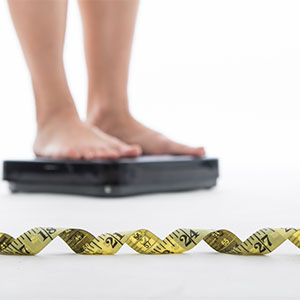 If you’re in a weight management plan or a weight-loss mission, do not fret because pasta can fit right in here. Because pasta is a low sodium food as well as fat-free.
If you’re in a weight management plan or a weight-loss mission, do not fret because pasta can fit right in here. Because pasta is a low sodium food as well as fat-free.
As we said before, one cup of perfectly cooked pasta contains … calories along with some valuable vitamins and minerals. Moreover, pasta fills you up enough which helps you not to feel hungry when you’re losing weight.
Also, pasta comes with a low GI (glycemic index) so there’s no risk of sugar rising in the blood so quickly. The term ‘glycemic index’ indicates how rapidly a carb spikes in blood sugar. And, a low glycemic index refers to a slower digestion rate that will help you with diet control.
Whole Wheat Pasta or White Pasta?
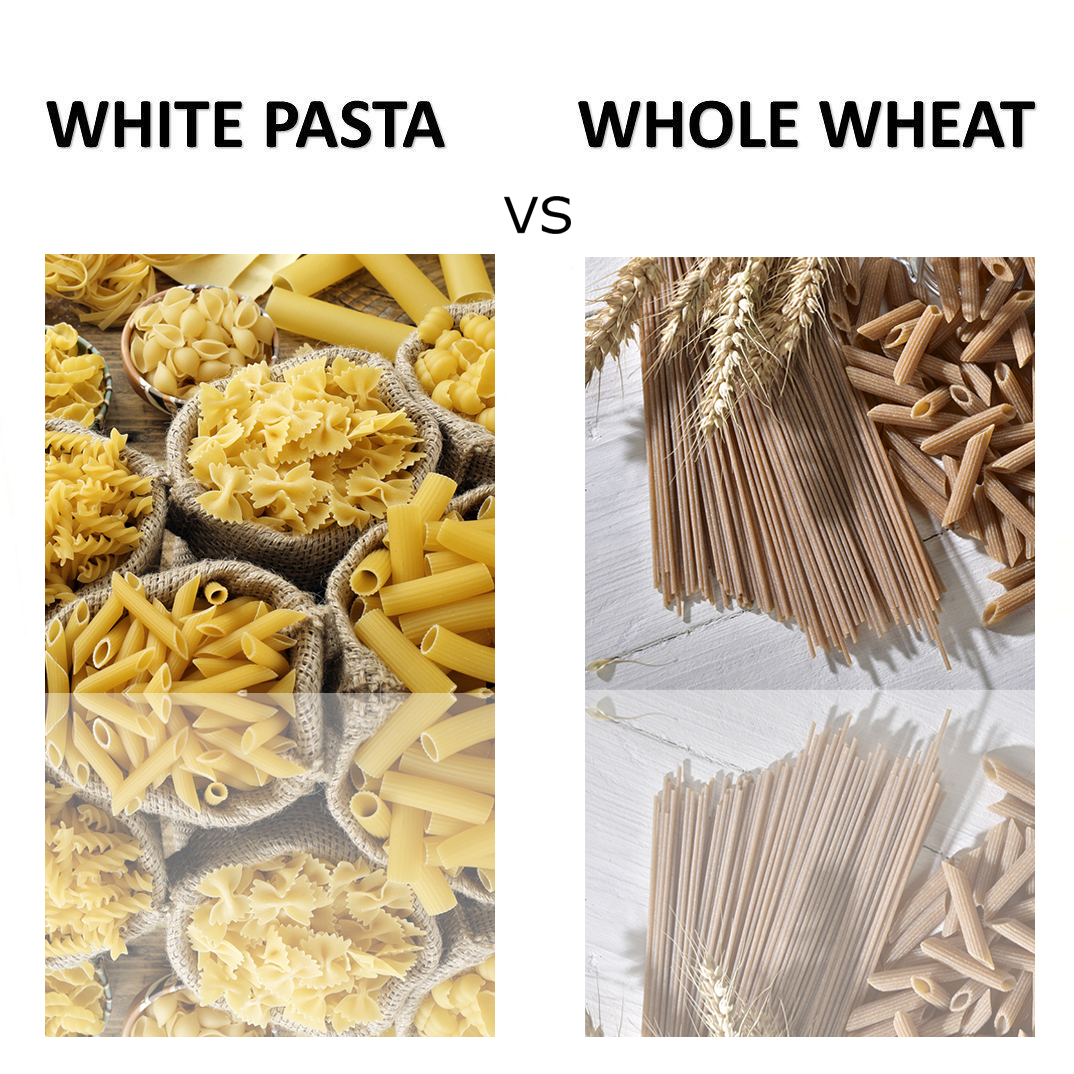 Now, let’s talk about the burning question- is whole-wheat pasta healthier than white pasta? The shortest answer is- yes!
Now, let’s talk about the burning question- is whole-wheat pasta healthier than white pasta? The shortest answer is- yes!
Whole-wheat pasta is rich in nutrients like complex carbs, fiber, protein, zinc, magnesium, and iron. But white pasta is produced from refined pasta. Refined pasta has fewer nutrients as it loses a lot of nutrients during the refining process.
If you are not satisfied yet, here’s the evidence:
Nutrition facts of whole wheat pasta (2 ounces)-
- Calories- 180
- Carbs- 39 grams
- Protein- 8 grams
- Fiber- 7 grams
- Minerals (e.g iron, zinc, and magnesium)
Nutrition facts of white pasta (2 ounces)-
- Calories- 200
- Carbs- 42 grams
- Protein- 7 grams
- Fiber- 3 grams
- Only iron, no zinc or magnesium
So, that’s how the picture looks. Also, refined pasta spikes the blood sugar as well as insulin levels as your body digests refined pasta too quickly than any complex carb. Also, refined pasta is not as filling as the complex carbs. So, there’s a chance to overeat if you’re eating refined pasta that may lead you to obesity.
Tips to Make Healthier Pasta-Based Meals
If you’re planning to make a pasta-based dish, that’s great because pasta is an amazing base for various healthful meals. Here are some tips you can follow to make healthy pasta-based dishes:
- Use lean proteins (e.g fish)
- Add plenty of vegetables
- Use a limited amount of oil (1-2 tablespoons)
- Use nutritional yeast instead of using cheese
- Make sauces at home rather than purchasing premade ones
- Use whole-grain, lentil-based, or bean-based pasta
Limiting the portion size also a point to be concerned about. Fill half of your plate with vegetables and fruits and a quarter with pasta (or any other carbohydrates).
Frequently Asked Questions of Pasta Protein
Conclusion
So, we’re done talking about the ins and outs of pasta. Now, you have got your answer to- ‘is pasta protein or carbohydrate?’, right?
Pasta contains a lot of nutritional value. However, everyone should eat pasta, but in moderation. If you choose a good type of pasta and let it not overcook, you can enjoy a world-class meal.
Happy Fooding!

